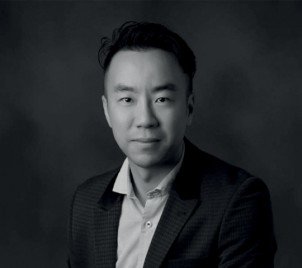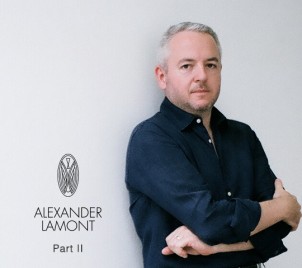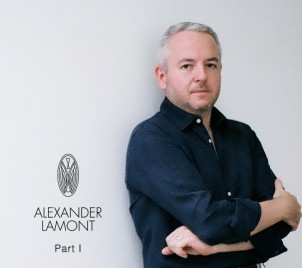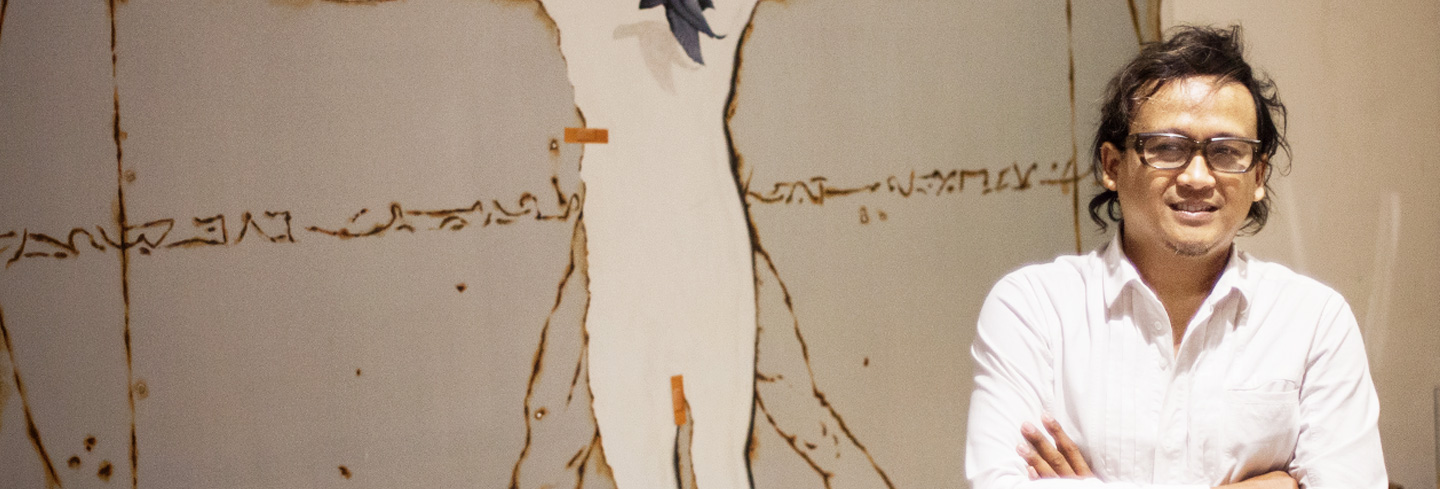
Nature and Space : The Designs of Budi Pradono
Text by Marcel Thee, Photography by Rainer Distefano.
Monday 19 December 2016
Budi Pradono is one of Indonesia’s most respected architects. His designs evoke an artist’s sensitivity alongside the intellectual-efficiency of a world-class designer. Through his own Budi Pradono Architects, the 46-year old has worked on myriad renowned projects, both locally and internationally.
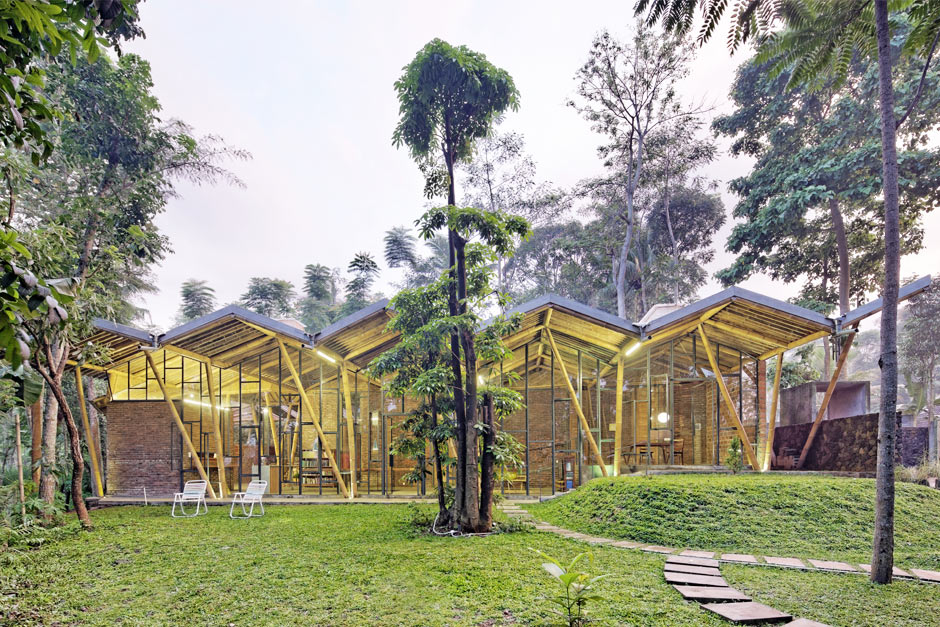 Dancing Mountain House - Image Courtesy of Budi Pradono Architects (BPA)
Dancing Mountain House - Image Courtesy of Budi Pradono Architects (BPA)
These projects have included the Pure Shi Shi Lin exhibition space in Taipei; La Danza del Nastro in Finland; the Wellness Archipelago in Kiev Island, and the Amoe Museums Park Masterplan in Korea. Then there are his much-praised and referenced residential projects around the country – the Slanted House in Pondok Indah, Jakarta; the Dancing Mountain house in Salatiga; the Canggu House in Bali; and the R House in Depok.
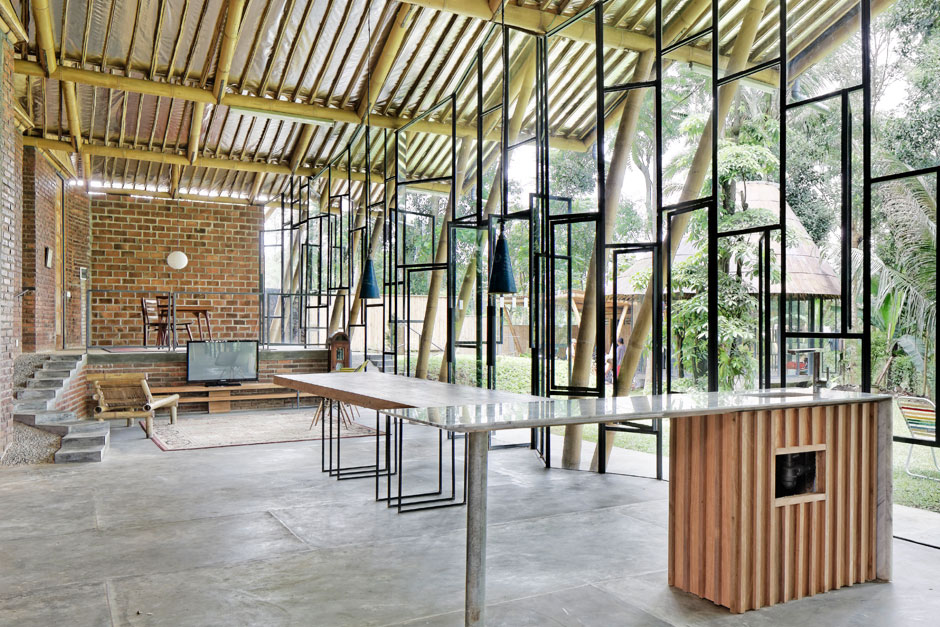 Dancing Mountain House - Image Courtesy of Budi Pradono Architects (BPA)
Dancing Mountain House - Image Courtesy of Budi Pradono Architects (BPA)
Many of his work has garnered awards. Most recently, the Dancing Mountain house won the best residential award across Asia at the 2016 Arcasia Architecture Awards (AAA) in Hong Kong last September.
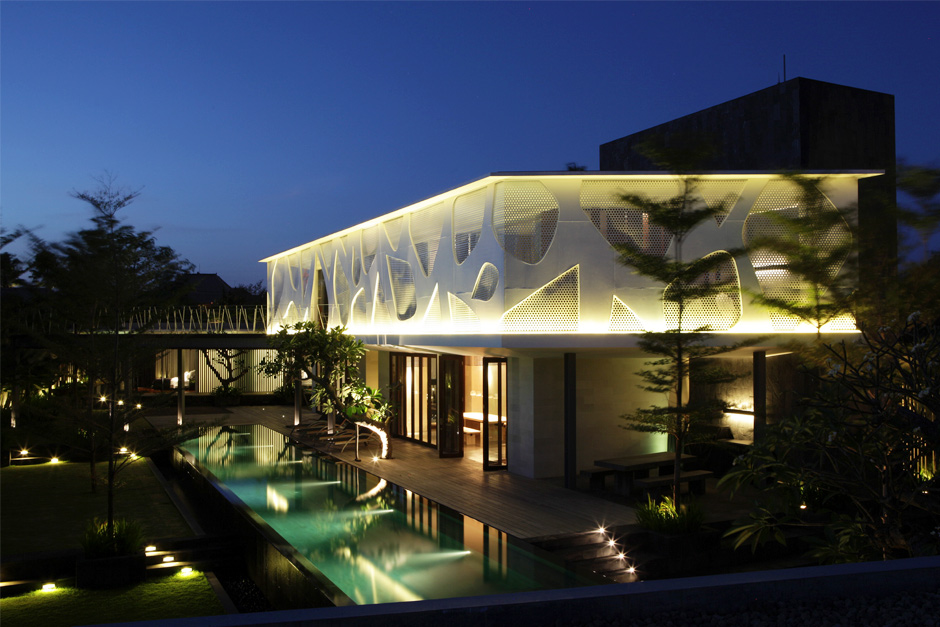 Issi Villa - Image Courtesy of Budi Pradono Architects (BPA)
Issi Villa - Image Courtesy of Budi Pradono Architects (BPA)
Born in Salatiga, Budi Pradono sharpened his architectural finesse through a wealthy resume which includes stints at the Beverley Garlick Architects (Sydney-Jakarta) and International Design Consultants (Jakarta-San Fransisco). Budi obtained his masters at Berlage Institute in Rotterdam, Netherlands, and was the Project Architect at Kengo Kuma & Associates in Tokyo, Japan.
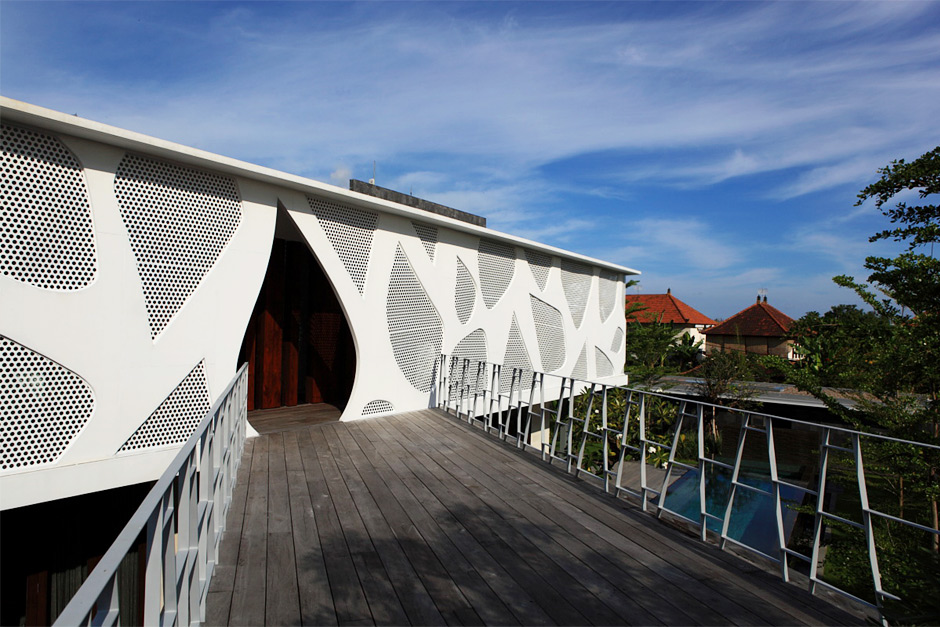 Issi Villa - Image Courtesy of Budi Pradono Architects (BPA)
Issi Villa - Image Courtesy of Budi Pradono Architects (BPA)
For Budi, architectural design is a form of applied arts, which means that it should be applicable but also enforce a high level of contribution to a space’s look and function. It should also be a space for constant progress and creation.
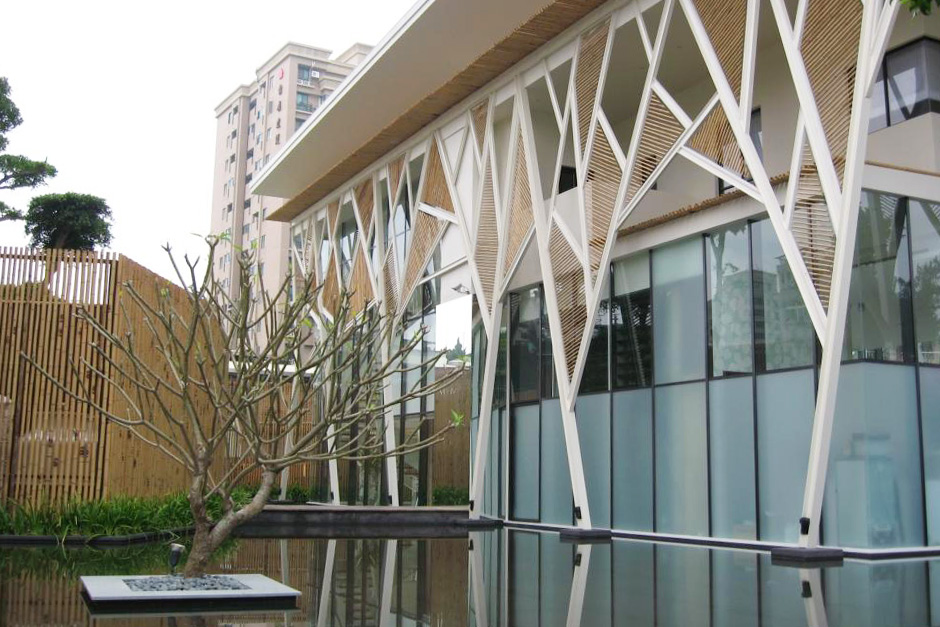 Pure Shi Shi Lin - Image Courtesy of Budi Pradono Architects (BPA)
Pure Shi Shi Lin - Image Courtesy of Budi Pradono Architects (BPA)
“Of course, as architects, we also have a responsibility to implement new designs in the field,” he says.
For Budi, the best part of constructing a design is in seeing how seemingly-disparate elements slowly come together to form a complete whole.
 Pure Shi Shi Lin - Image Courtesy of Budi Pradono Architects (BPA)
Pure Shi Shi Lin - Image Courtesy of Budi Pradono Architects (BPA)
“In the design process, there are times when we have to collect both physical and non-physical data. The most difficult of which is trying to configure an invisible data into a design, and the most satisfying is when all of your invisible data is rationalized and turned into a drawing and meshed with the (building) owner’s needs, which are stored in a program,” explains Budi before continuing, “That is when the light starts to shine – just like when you’re cooking and all the ingredients turn into a whole meal – and architecture starts to take shape into a cool, arousing whole.”
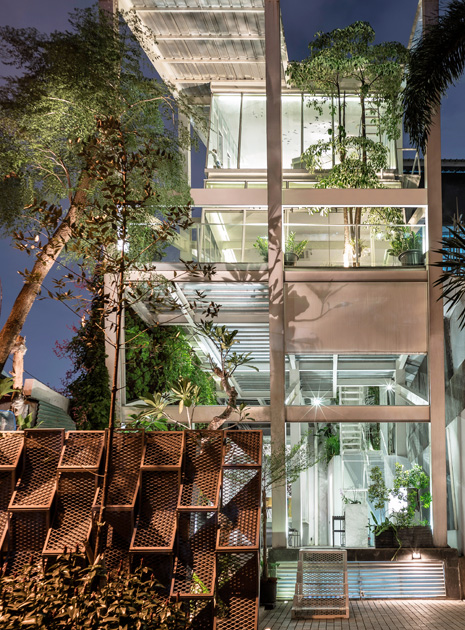 Rumah Miring - Image Courtesy of Budi Pradono Architects (BPA)
Rumah Miring - Image Courtesy of Budi Pradono Architects (BPA)
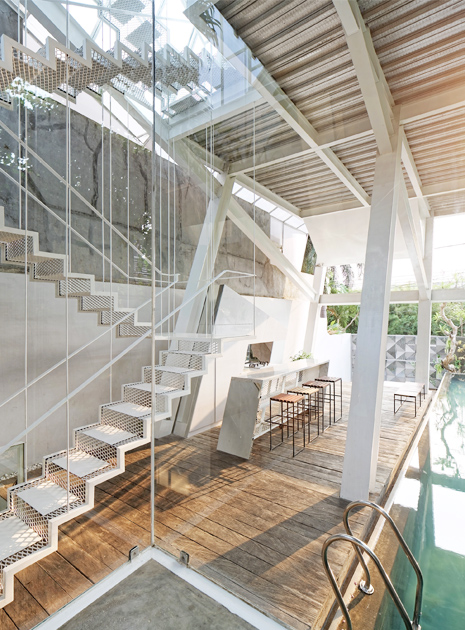 Rumah Miring - Image Courtesy of Budi Pradono Architects (BPA)
Rumah Miring - Image Courtesy of Budi Pradono Architects (BPA)
“Of course, as architects, we also have a responsibility to implement new designs in the field.”
By Budi Pradono
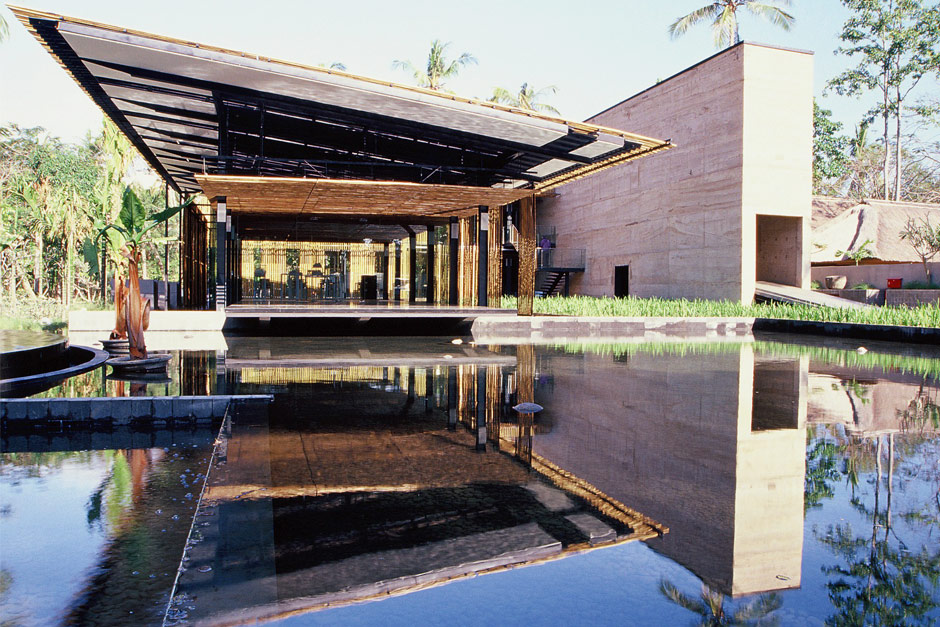 Tentaring Kayu Manis - Image Courtesy of Budi Pradono Architects (BPA)
Tentaring Kayu Manis - Image Courtesy of Budi Pradono Architects (BPA)
Clearly, Budi‘s approach is a personal and emotional one. The results speak for themselves; buildings, spaces, and homes that evoke a sense of welcome without omitting function. It only makes sense that Budi has been on the receiving end of so many awarding events.
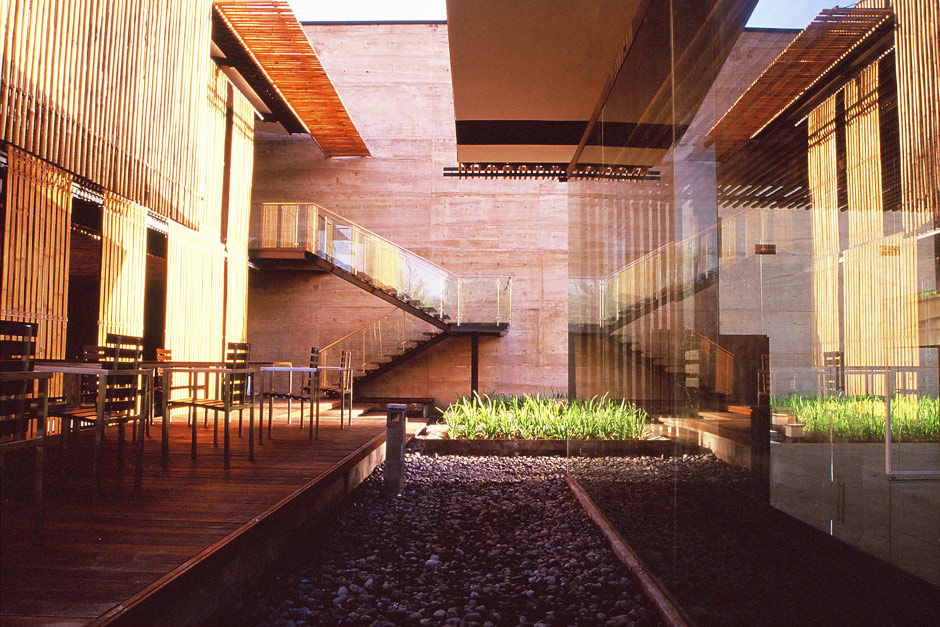 Tentaring Kayu Manis - Image Courtesy of Budi Pradono Architects (BPA)
Tentaring Kayu Manis - Image Courtesy of Budi Pradono Architects (BPA)
“That is when the light starts to shine – just like when you’re cooking and all the ingredients turn into a whole meal – and architecture starts to take shape into a cool, arousing whole.”
By Budi Pradono
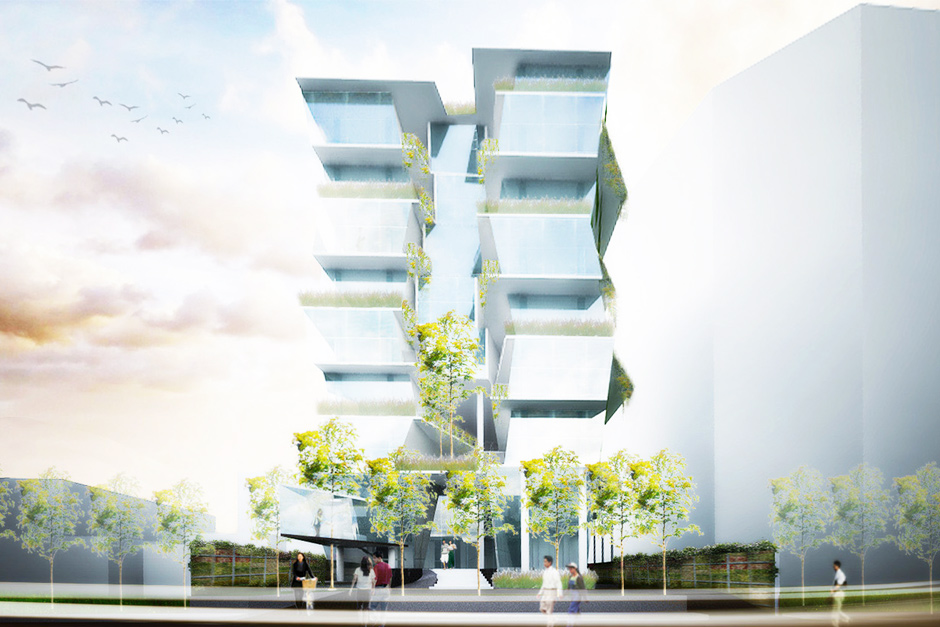 U- Janavella Hotel - Image Courtesy of Budi Pradono Architects (BPA)
U- Janavella Hotel - Image Courtesy of Budi Pradono Architects (BPA)
“Awards, for me, are recognitions from a community as well art and architecture aficionados. Of course they are encouraging in energizing us (architects) in continuing to create works that contribute something for humanity… and the local community,” Budi says, adding that one of his proudest awards was the one given by the prestigious Ikatan Arsitek Indonesia, the Architecture Arcasia Award.
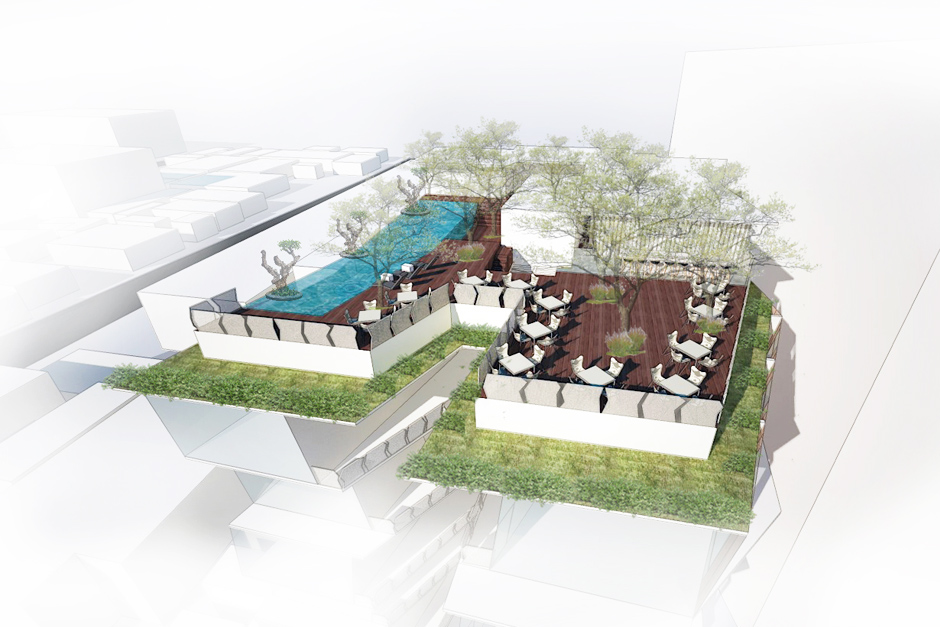 U- Janavella Hotel - Image Courtesy of Budi Pradono Architects (BPA)
U- Janavella Hotel - Image Courtesy of Budi Pradono Architects (BPA)
Nature also plays into Budi‘s designs, seen vividly in his residential projects, which all features living spaces that brush up against sceneries and its natural surroundings. It is a form of reaction towards serving the human need for an organic existence, which is slowly evaporating.”
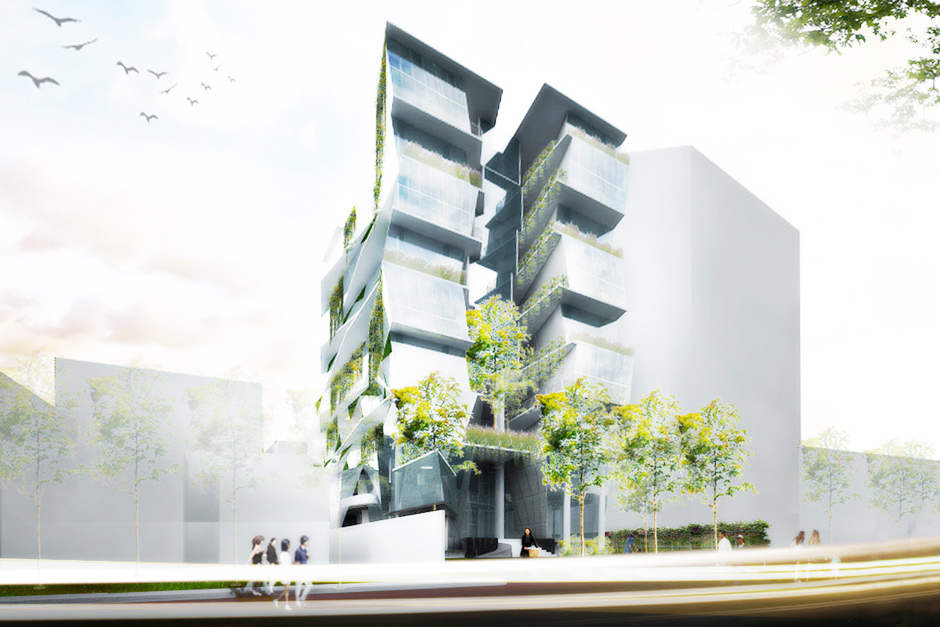 U- Janavella Hotel - Image Courtesy of Budi Pradono Architects (BPA)
U- Janavella Hotel - Image Courtesy of Budi Pradono Architects (BPA)
Concludes Budi, “I think, because everything is digital nowadays, and everyone is reliant on the Internet……people would like to feel close to nature. That is why, whenever I am building something that is close to nature, it is important for me to understand its surrounding environment and to try and respect it by using some the materials cut down from trees or utilizing other organic materials around.”
